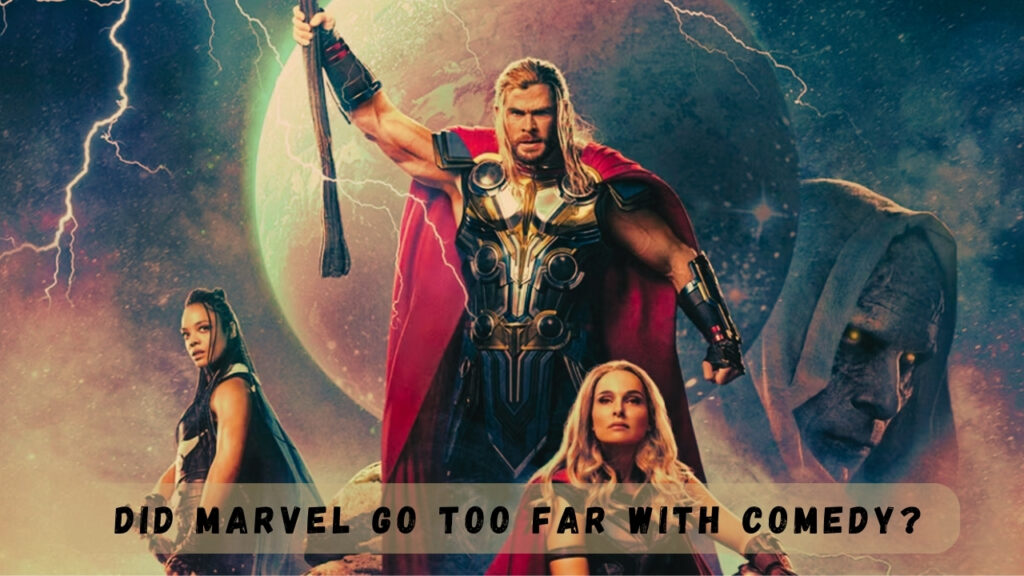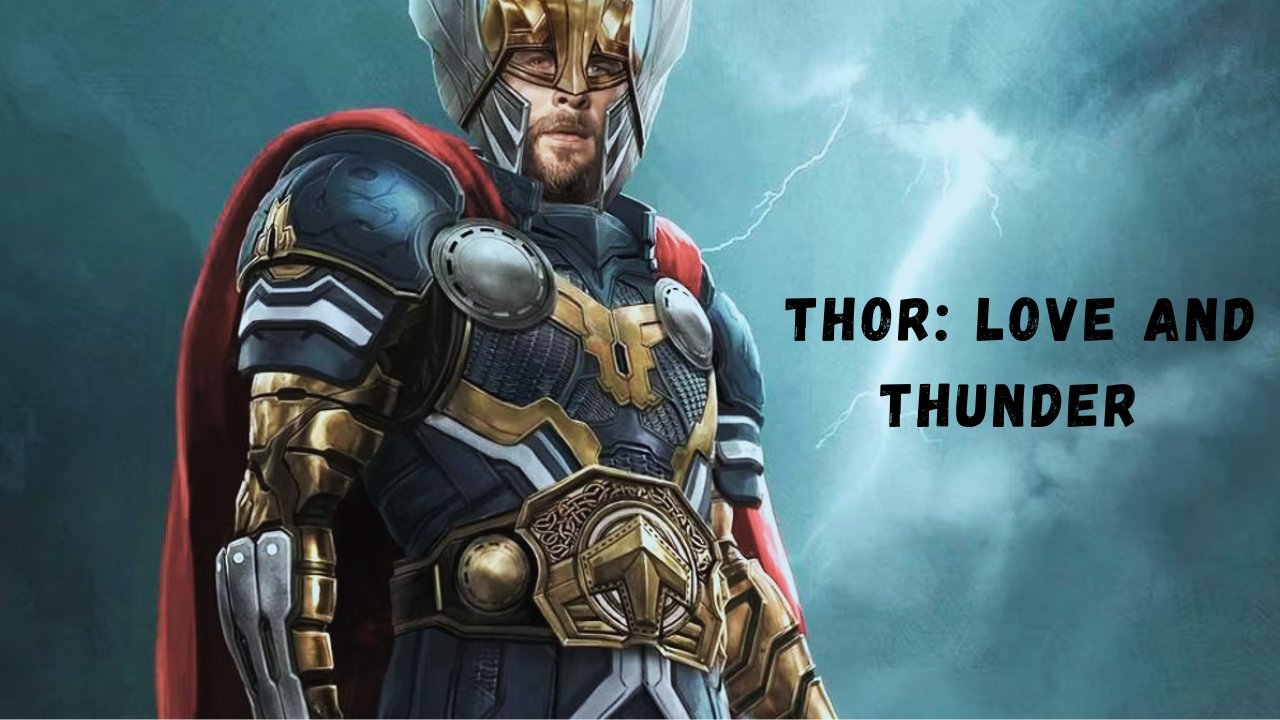When I sat down to watch Thor Love and Thunder, I was ready for another thrilling cosmic adventure. The visuals promised spectacle, and on that front, the movie didn’t disappoint—vivid planets, electrifying battles, and the unmistakable grandeur of Marvel on the big screen. But as the credits rolled, one question stayed with me:
Did Marvel lean too hard on humor and lose some of the emotional core that makes Thor’s story so compelling?
From Ragnarok’s Wit to Love and Thunder’s Playfulness
Back in 2017, Thor Love and Thunder Ragnarok breathed new life into the franchise. Taika Waititi’s direction embraced humor and color, transforming Thor from a stoic warrior into a charismatic, fun-loving hero. It was a bold shift that fans embraced wholeheartedly.
But Love and Thunder takes that tone and dials it up further. This time, comedy feels nearly non-stop. While it keeps the film lively, it sometimes interrupts moments that should have landed with emotional impact. Instead of balancing laughter with gravity, the movie veers closer to outright parody—a choice that divides audiences depending on what they expect from a Thor story.
Thor’s Goofier Side: A Blessing or a Misstep?
Thor’s journey has always been rich with transformation: arrogant prince, broken warrior, and finally, a hero reborn. In Thor Love and Thunder, however, we see Thor at his quirkiest yet. From jealous squabbles with Stormbreaker to his awkward romance with Jane, Thor often feels more like comic relief than the powerful God of Thunder we first met.
Chris Hemsworth clearly enjoys this lighter version, but given everything Thor has endured—the loss of his parents, Loki’s repeated deaths, the destruction of Asgard—it’s surprising how little of his pain shows. Instead, much of his depth is masked behind jokes and silly antics.
It’s funny, sure. But it also raises a question: has Thor’s character swung too far into pure comedy?
Jane Foster’s Transformation as The Mighty Thor
Jane Foster’s return is one of the film’s brightest spots. Natalie Portman steps back into the MCU not just as Thor’s former love interest, but as The Mighty Thor—a hero wielding Mjolnir while quietly battling terminal cancer.
Her performance is heartfelt, striking a beautiful balance between strength and vulnerability. Jane’s story could have been the emotional anchor of the film. Yet, its power is occasionally drowned out by the surrounding humor. With more room to breathe, her journey might have ranked among Marvel’s most moving arcs.
Her final moments, though, are undeniably touching—offering both closure and a poignant reminder of what the film could have been if it had embraced its serious side more often.
Gorr the God Butcher: Brilliant but Underused

Christian Bale’s portrayal of Gorr is chilling from the first scene. His tragic backstory and quiet menace set him up as one of the MCU’s most promising villains. Yet, despite Bale’s gripping performance, Gorr feels strangely underdeveloped.
We get glimpses of his pain and his twisted crusade, but much of his screen time is overshadowed by humor-driven subplots. With a deeper dive into his philosophy and god-slaying path, Gorr could’ve easily rivaled villains like Thanos or Killmonger. Instead, his terrifying potential feels only partially realized.
Humor That Works—and Humor That Doesn’t
Comedy is part of Marvel’s DNA, but Thor Love and Thunder puts it front and center.
What lands: Thor’s awkward reunion with Jane, Korg’s lighthearted narration, and the playful “Stormbreaker vs. Mjolnir” rivalry bring genuine laughs.
What falters: Running gags like the screaming goats or extended jokes that overstay their welcome often cut into dramatic tension.
Marvel has struck this balance well before (Infinity War is proof), but here, humor frequently overshadows heartfelt storytelling.
Visuals and Action: A Rock-and-Roll Spectacle
Visually, though, the film is stunning. The neon vibrancy of New Asgard contrasts beautifully with the eerie monochrome Shadow Realm, giving battles a unique aesthetic flair.
Action-wise, Thor empowering Asgard’s children in the final fight is both inventive and fun, adding a fresh twist to Marvel’s usual climactic battles. Paired with Guns N’ Roses’ soundtrack, the film often feels like a cosmic rock opera—loud, colorful, and unapologetically bold.
Supporting Cast: Fun but Underexplored
Korg: Still delightful, but sometimes overused as comic relief.
King Valkyrie: Tessa Thompson oozes charisma, but her storyline as New Asgard’s leader feels rushed and underdeveloped.
Both characters are enjoyable, yet neither gets the depth they deserve.
Themes Beneath the Chaos
Even amidst its comedy, Thor Love and Thunder touches on poignant themes:
Identity: Thor continues his search for purpose beyond titles and weapons.
Mortality and Love: Jane’s arc grounds the film in deeply human stakes.
Legacy: Thor adopting Gorr’s daughter hints at growth, signaling his shift from lone hero to mentor.
The ending—Jane’s serene acceptance in Valhalla and Thor embracing fatherhood—delivers a satisfying, if uneven, conclusion.
Final Verdict: A Fun Ride Missing Its Heart
So, did Marvel push comedy too far? In my view, yes—though not irredeemably so. The movie is entertaining, visually gorgeous, and brimming with personality, but its relentless humor sometimes muffles the emotional resonance at its core.
It’s an enjoyable cosmic adventure, but one that could’ve been unforgettable had it given its quieter, more dramatic beats room to shine.
What Do You Think?
Did you enjoy this zany, comedic version of Thor Love and Thunder, or do you miss the weight and gravitas of his earlier stories? Share your thoughts in the comments!
And if you loved this breakdown, check out my other Marvel blogs for more deep dives into characters, themes, and what’s next for the MCU!
Let’s talk: Did Thor: Love and Thunder hit the right notes for you? Or did the comedy overshadow the core of the story? Share your thoughts in the comments!




